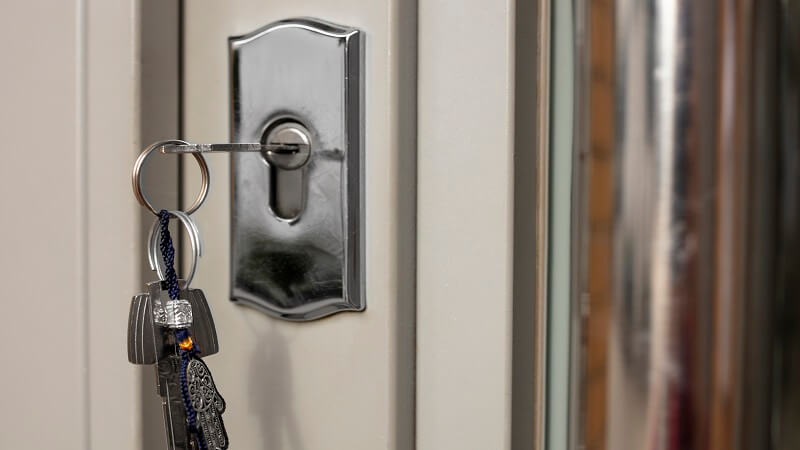In an increasingly uncertain world, securing your valuables is more important than ever. Whether it’s jewelry, electronics, important documents, or sentimental items, understanding how to protect what matters most to you can give you peace of mind. Here are some essential tips to help you lock it down and ensure the safety of your possessions.
1. Invest in Quality Locks and Security Systems
The primary barrier against theft is the quality of your locks. Upgrading to high-grade deadbolts for your doors and robust window locks can greatly enhance your home’s security. Additionally, think about implementing a comprehensive security system that includes features like cameras, motion detectors, and alarms. Smart home technology, such as Wi-Fi door locks, allows you to keep an eye on your property from anywhere, giving you peace of mind whether you’re at home or away.
When selecting a security system, be sure to research trusted brands and read customer reviews. A reliable system should provide 24/7 monitoring and swift response times to keep you safe and secure at all times.
2. Use a Safe for Valuables
For items of significant value—like cash, jewelry, and important documents—a safe is essential. There are various types of safes available, including fireproof and waterproof options, to protect against different threats. Choose a safe that meets your needs and is heavy enough to deter thieves from simply carrying it away.
When installing your safe, think strategically about its location. Ideally, it should be hidden from plain sight, yet accessible enough for you to reach quickly in an emergency. Bolting the safe to the floor can also deter thieves, making it harder to remove.
3. Practice Smart Organization
An organized home is not only easier to manage, but it also enhances security. Keep valuable items in designated areas, and avoid leaving them in plain sight. Use drawers, cabinets, or storage bins to conceal valuable belongings. This not only reduces the likelihood of theft but also helps you keep track of your possessions.
For important documents, consider using a fireproof file cabinet or a secure digital storage solution. Regularly declutter and discard items you no longer need, ensuring that your valuable items are the ones that matter most.
4. Be Cautious with Social Media
In today’s digital age, it’s easy to overshare on social media, often without realizing the potential consequences. Posting about vacations, valuable purchases, or new belongings can alert potential thieves to the fact that your home is empty or that you have valuable items.
To maintain your security, be mindful of what you post. Avoid sharing real-time updates about your location or your home’s security features. Instead, save these updates for when you return home or when you’re less vulnerable.
5. Know Your Neighbors
A strong sense of community can significantly enhance your security. Get to know your neighbors and establish a neighborhood watch or informal safety group. This way, you can keep an eye on each other’s homes and report any suspicious activities.
Additionally, inform your neighbors when you plan to be away for an extended period. They can help keep an eye on your property, collect mail, and even park their car in your driveway to make it appear as though someone is home.
6. Secure Your Vehicle
Your valuables are not just at risk at home; they can also be vulnerable in your vehicle. Never leave valuables in plain sight, especially in parked cars. Always lock your doors and close your windows when leaving your vehicle unattended.
Consider investing in additional security measures, such as steering wheel locks, car alarms, or GPS tracking systems. These tools can provide an extra layer of protection and can help recover your vehicle if it is stolen.
7. Educate Your Family
Ensure that everyone in your household understands the importance of securing your valuables. Teach your family members about safety protocols, such as locking doors and windows, using the security system, and being cautious with social media. The more informed everyone is, the more secure your home will be.
Involve children in discussions about safety and security, using age-appropriate language to help them understand potential threats. Encourage them to report any suspicious activities they may notice in or around the home.
8. Regularly Review Your Security Measures
Finally, it’s essential to review and update your security measures regularly. Technology is constantly evolving, and new threats can arise. Periodically assess your home’s security, checking locks, updating passwords, and ensuring your security system is functioning properly.
Consider conducting a security audit,either independently or with a professional. This can help identify any vulnerabilities you may have overlooked and provide you with actionable steps to enhance your security.
In Conclusion
Securing your valuables is an ongoing process that requires vigilance and adaptability. By investing in quality security measures, organizing your home smartly, and fostering community connections, you can significantly reduce the risk of theft and gain peace of mind. Remember, the goal is to make it as difficult as possible for thieves to access your belongings. Implement these tips today and take the first step toward a more secure future.
